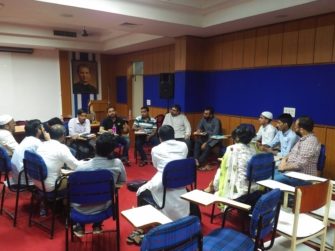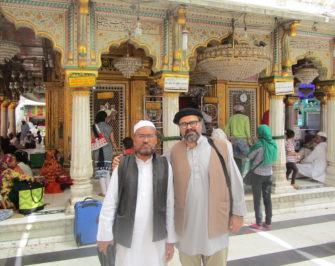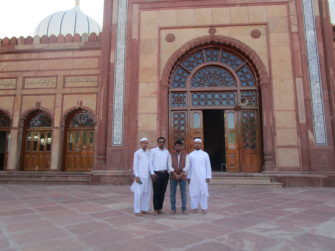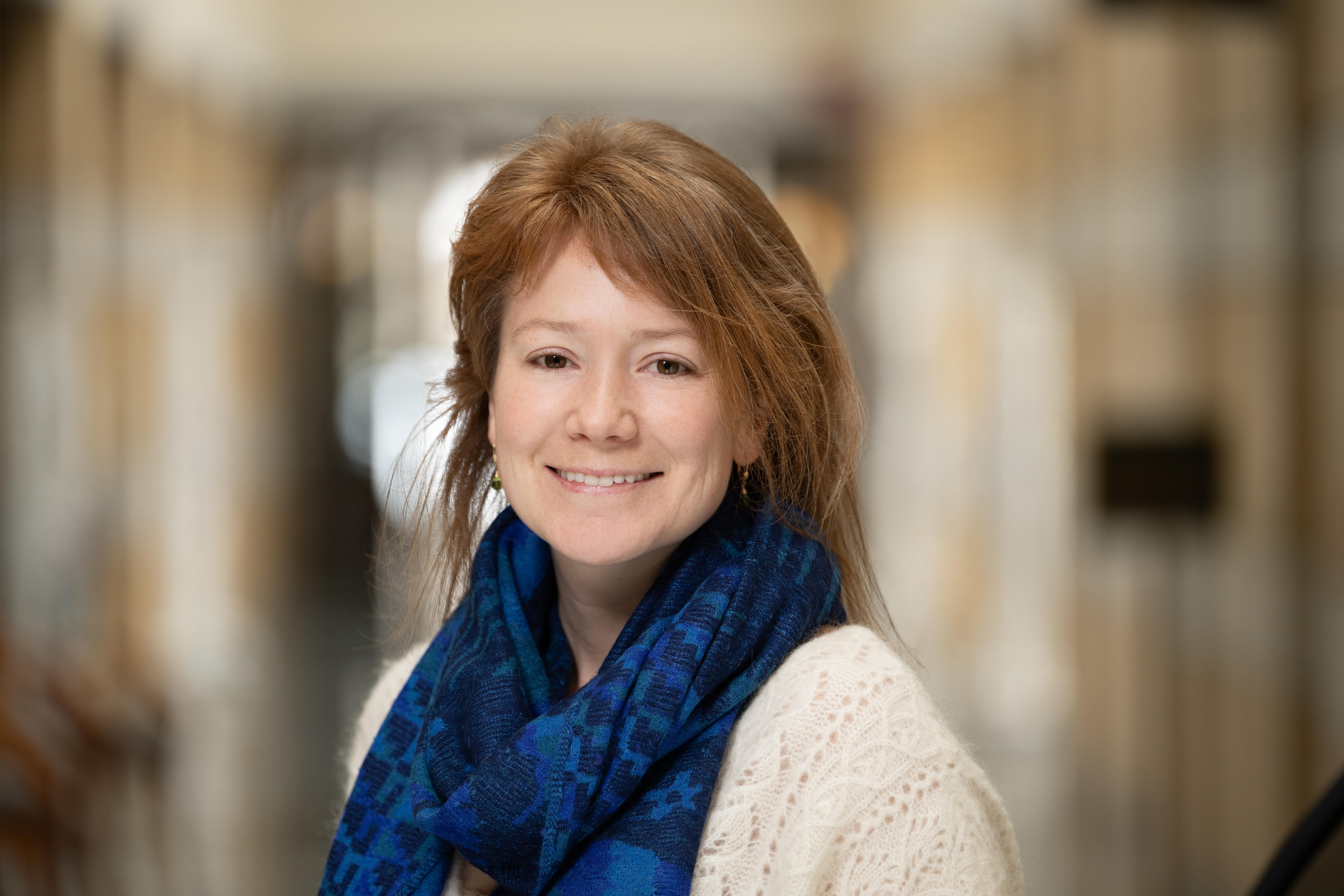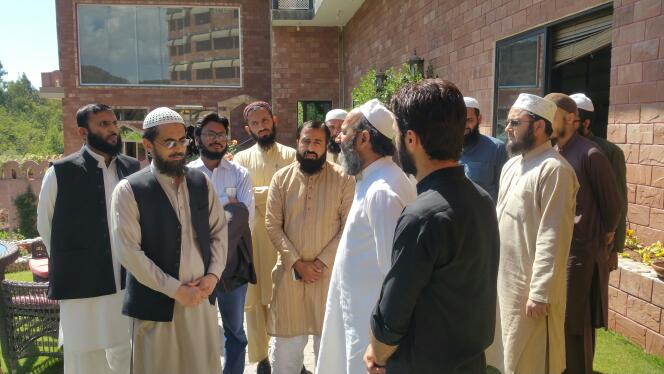
Under the steady beam of the PowerPoint, Pakistani students enrolled in the Notre Dame-based Madrasa Discourses program grappled with the theological implications of the age of the universe and theory of evolution—revealing their deep discomfort following a presentation that challenged a literal reading of the Quranic Genesis. This was a rare and civil encounter between religious scholars and scientists, hosted at an Islamabad hotel by the Pakistan Institute for Peace Studies (PIPS). Such meetings are an anomaly in a country where religious and scientific experts occupy exclusive and often antagonistic social spaces. The event was the fifth day of the week-long “April Intensive” session of the “Advancing Theological and Scientific Literacy in Madrasa Discourses” project.
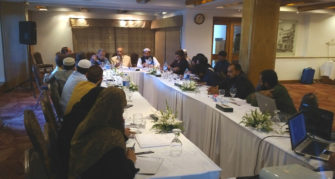
Dr. Abdul Hameed Nayyar, renowned Pakistani physicist and nuclear disarmament activist, patiently fielded questions from the openly skeptical students in the first semester of their three-year program. “What about competing theories?” some asked. “How can science be a source of truth if it is constantly shifting?” At the heart of these concerns are questions of epistemology echoed by the Indian students enrolled in the program who were meeting simultaneously a few hundred miles south across a militarized border. Borders, however, remain pervious to ideas, and both sites were connected throughout the week via an online virtual classroom.
Science and religion both operate through consensus. So say scholars who navigate contentions and even apparent contradictions inherent in conflicting theories and theological readings in the search for deeper truth. Yet consensus is nebulous concept. Who defines a consensus? The Ulama, religious scholars of a region? Or all experts of a particular age? Do we? The answer is significant, as the claim of a consensus carries weight and is even viewed as binding authority. And while religion, with its deep historical roots and foundational texts, may appear more infallible when faced with the continual transformations of science, can it too shift with the times and new forms of moral consensus? These are difficult and unresolved questions.
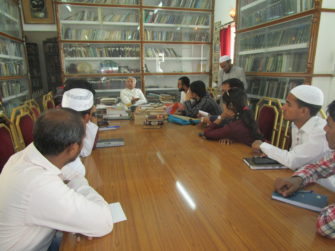
Religious scholars’ skepticism of science as a source of knowledge continues. At the PIPS meeting with scientists the binary approach to tradition (turāth) versus renewal in Islamic theology (tajdīd) surfaced once again. Yet, as the Director of the Sharia Academy in Gujranwala, Mawlana Zahid ur Rashidi, noted, science and religion are both components of an analytical approach. Science attempts to answer “what” questions; religion seeks to answer “why” questions. Apart or together, they both seek different aspects of the truth. In fact, in predicting the periodic renewal of religion, the Prophet Muhammad seems to have anticipated modernity by weaving the notion of continual change into the very fabric of religion, argued Professor A.K. Ramakrishnan of Jawaharlal Nehru University, who spoke to students about the Philosophy of History.
During the intensive sessions, students covered the history of philosophy though a reading of Sophie’s World, discussed the skepticism of Ghazali, the empirical approach of Ibn Khaldun, and engaged in critiques of the theological tradition by ardent scripturalists and rationalists alike. They did this by interacting with the faculty members of Madrasa Discourses: Mahan Mirza (Notre Dame), Waris Mazhari (New Delhi), Ammar Khan Nasir (Gujranwala), Idris Azad (Islamabad), Zahid Mughal (Islamabad), Mawlana Waheeduddin Khan (Delhi), Yasin Mazhar Siddiqui (Aligarh), Hakim Syed Zillur Rahman (Aligarh), and Altaf Ahmad Azmi (Delhi).
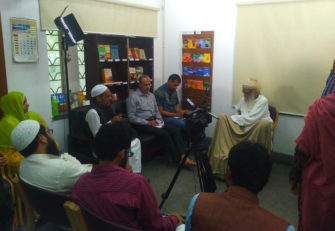
The eminent scholar and peace activist Mawlana Wahiduddin Khan advised students that their madrasa training is foundational and indispensable, but that their connection and relevance to the world will come from experiences “off campus.” These off-campus experiences are what Madrasa Discourses attempts to facilitate. At the meeting in Islamabad with scientists, madrasa graduates did not uncritically adopt the theory of evolution. Nor did the physicists defer to the standard story of human origins attributed to the Qur’an and held by followers of the Abrahamic traditions. Yet, hope lies in the readiness of the scientists to engage with religious scholars and the openness of madrasa students to learn more. In the exchange regarding the process of seeking and approximating truth, the seeds of an idea may have taken root. The destination of this open-eyed journey across different philosophical and epistemological traditions may not be clear or predictable, but composed rather of myriad intricacies, inspiring us to better understand the human condition in its full complexity.
